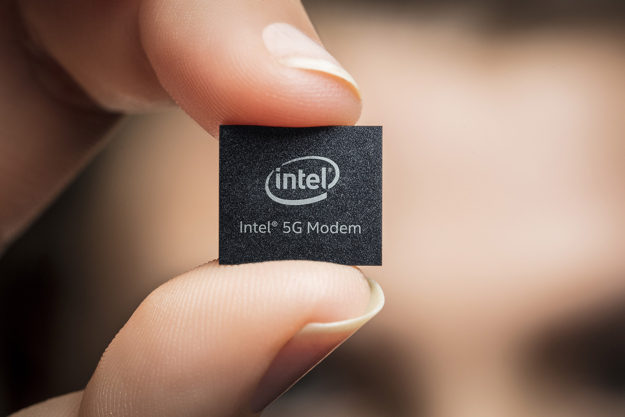Intel: Qualcomm "forced" us to sell modem biz at a 'multi-billion dollar loss'
The chipmaker says Qualcomm's practices stifled market competition


Intel has said it was "forced" to sell its modem chip business to Apple because Qualcomm muscled the company out of the market with anticompetitive practices.
The claims appeared in a brief filed with the 9th US Circuit Court of Appeals on Friday as part of Qualcomm's efforts to try and overturn a decision of an antitrust lawsuit it lost in May to the Federal Trade Commission (FTC).
Steven Rodgers, EVP and general counsel at Intel said his company "was denied opportunities in the modem market, was prevented from making sales to customers and was forced to sell at prices artificially skewed by Qualcomm," in a blog post accompanying the brief on Friday.
Rodgers added that the business was sold to Apple at 'a multi-billion dollar loss' after years of innovation, acquisitions and work to create a profitable modem business.
"We invested billions, hired thousands, acquired two companies and built innovative world-class products that eventually made their way into Apple's industry-leading iPhones, including the most recently released iPhone 11," he said.
"But when all was said and done, Intel could not overcome the artificial and insurmountable barriers to fair competition created by Qualcomm's scheme and was forced to exit the market this year."
The enforcement of the May ruling was paused in order to hear Qualcomm's appeal. If the appeal fails, the ruling will stand and the company will have to renegotiate its licensing agreements at reasonable prices.
Sign up today and you will receive a free copy of our Future Focus 2025 report - the leading guidance on AI, cybersecurity and other IT challenges as per 700+ senior executives
Qualcomm's 'no license, no chips' policy is the one which is being scrutinised by the courts. It involves cutting off the supply to its modem chips to OEMs if they refuse to sign the patent license agreement with Qualcomm.
"These onerous, one-sided terms enable Qualcomm to artificially lower the price of its modems while simultaneously inflating customers' costs of using modem chips manufactured by competitors, like Intel, by charging royalties as large as the price of the modems themselves," said Rodgers.
IT Pro contacted Qualcomm but it refused to comment on the matter.
As part of Apple's settlement of the years-long lawsuit with Qualcomm, separate to the antitrust lawsuit, the iPhone maker signed a six-year global patent agreement with Qualcomm. This suggests that Qualcomm will once again supply modem chips to Apple for future iPhones.
Because Apple settled with Qualcomm at a similar time to Intel announcing that it would exit the 5G modem chip space, it hasn't been established whether Apple settled because Intel was leaving the space or Intel left because of Apple's settlement.
With Apple's $1 billion (£775 million) acquisition of Intel's modem chip business set to complete before the new year, many have predicted that Apple will begin to develop its own 5G chips in the coming years.
Intel has said that although it's selling off its modem chip business to Apple, it will continue to develop 5G chips for other devices such as 'always-connected PCs' and autonomous cars.

Connor Jones has been at the forefront of global cyber security news coverage for the past few years, breaking developments on major stories such as LockBit’s ransomware attack on Royal Mail International, and many others. He has also made sporadic appearances on the ITPro Podcast discussing topics from home desk setups all the way to hacking systems using prosthetic limbs. He has a master’s degree in Magazine Journalism from the University of Sheffield, and has previously written for the likes of Red Bull Esports and UNILAD tech during his career that started in 2015.
-
 How SMBs can DIY their IT implementation and support
How SMBs can DIY their IT implementation and supportFeature For some small and medium-sized businesses, the third-party expertise and support might be out of reach. What’s the alternative?
-
 What the fragmentation of UC means for the channel
What the fragmentation of UC means for the channelIndustry Insights If communications are becoming fragmented, what does that mean for MSPs and VARs?